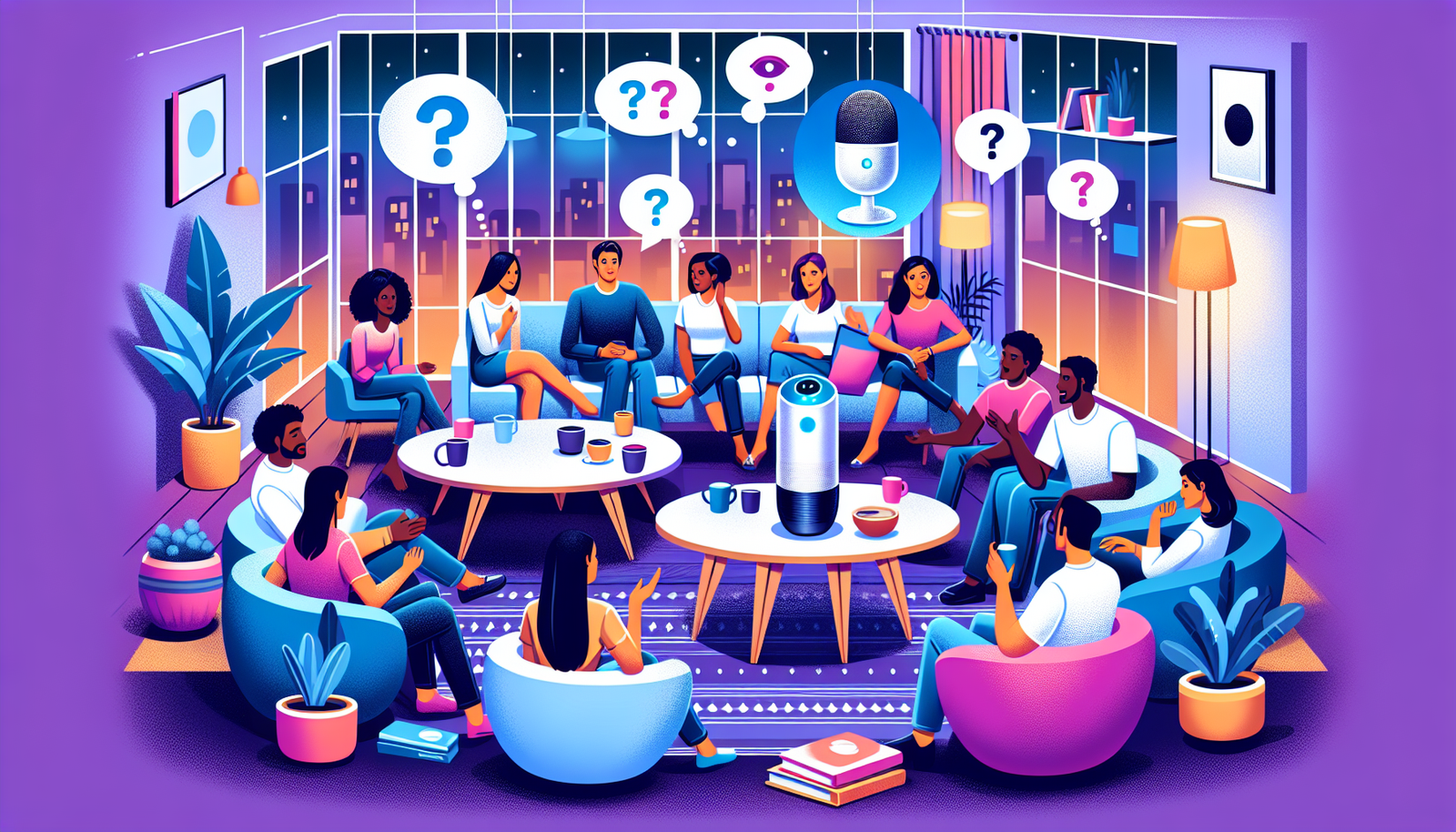Voice assistants, ubiquitous in our daily lives, raise ethical and social questions. _Should they be given a gender identity?_ The design of these technologies is thought-provoking, especially when these tools are feminized by a soft and warm voice. _Do their personality traits reinforce gender stereotypes?_ This questioning is fundamental as their use continues to grow. _What implications does this have on social dynamics?_ The voices of assistants, far from being neutral, can influence human relationships and shape our perceptions.
The gender dynamics and voice assistants
Revealing studies show that communication with voice assistants, such as Alexa and Siri, reflects gender biases. Men interrupt these artificial intelligences almost twice as often as women. This observation, published in the Proceedings of the ACM on Human-Computer Interaction, raises questions about the design of these technological tools.
Implications of design choices
Design choices that incorporate stereotypical traits, often associated with feminine gender, are called into question. A friendly intonation or apologetic behaviors can reinforce gender stereotypes. Researchers advocate for the development of voice assistants with a neutral voice and for a more equitable representation, thus reducing stereotypical biases.
User study and behavior
In a study conducted by researchers from Johns Hopkins University, 40 participants interacted with a pre-programmed voice assistant designed to make mistakes. Participants’ reactions were observed based on the vocal attribute — feminine, masculine, or neutral. The results indicate that users assign greater competence to voice assistants with a feminine voice, demonstrating underlying biases against women in supportive roles.
Interactions and perceptions
Interesting behaviors emerged during this study. Men frequently interrupted the voice assistant when it made mistakes. They also tended to respond more socially to female assistants, expressing emotions such as smiling or nodding. These observations reveal a preference for support voices with a feminine tone and highlight the persistent gender stereotypes.
Interventions and future proposals
Researchers are considering developing voice assistants equipped to detect biased behaviors in real-time. Through this approach, interactions could be adjusted to promote more equitable exchanges. Particular attention will be given to the inclusion of non-binary voices, which have been underrepresented in initial studies.
The call for thoughtful design
Reflection on the gender representation of voice assistants is gaining increasing importance. Designers must ensure that they avoid promoting harmful stereotypes while adjusting these technologies to a constantly evolving digital environment. Implementing thoughtful design is crucial to ensure effective support without perpetuating societal injustices.
Gender biases in voice assistants must be addressed with vigilance. This responsibility falls on designers and users to question the societal implications of their technological choices.
Frequently Asked Questions about voice assistants and gender
Should voice assistants be gendered?
There is no consensus on the necessity of gender for voice assistants. Some argue that a neutral design can avoid reproducing gender stereotypes, while others believe that a gender can make the interaction more human.
How does the gender representation of voice assistants affect our interactions with them?
Gender representation can influence user behaviors. Studies show that users tend to interrupt voice assistants with a feminine voice more frequently, which can reinforce gender stereotypes.
Do voice assistants impact social relationships with their gender representations?
Yes, how voice assistants are perceived can affect human interactions, reinforcing power and gender dynamics in everyday life.
What are the risks of gender stereotypes in the design of voice assistants?
The main risk is the perpetuation of harmful stereotypes, where feminine voices are often associated with “apologetic” and “submissive” traits, which can harm emancipation and gender equality.
Do consumers prefer female or male voice assistants?
Preferences vary, but studies indicate that some users may feel more comfortable with a feminine voice due to perceived warmth and empathy associated with that gender, while others may prefer a masculine voice for its connotation of authority.
How are technology companies responding to concerns about the gender of voice assistants?
Increasingly, companies are considering creating voice assistants with a neutral design to avoid imposing gender stereotypes. They are also seeking to gather diverse opinions to improve representation in development.
What changes can be made to design more inclusive voice assistants?
The design of voice assistants should include options for neutral voices and settings, allowing users to choose their preference while minimizing gender expectations or stereotypes.






